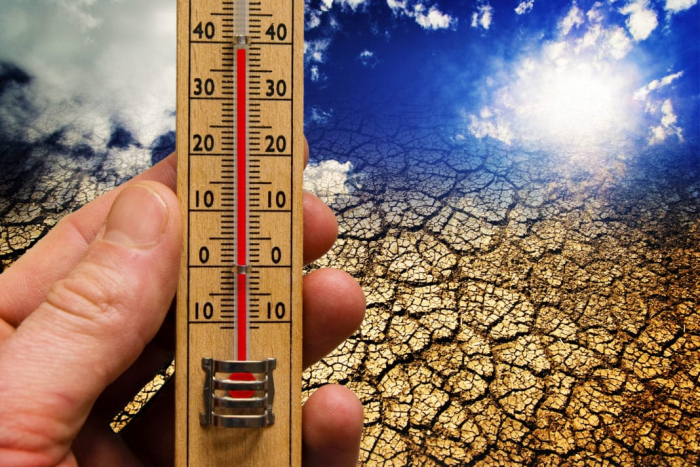The phrase global warming is used by scientists to mean a long-term increase in Earth’s average air temperature. It can refer specifically to such warming that is due to the influence of rising concentrations of greenhouse gases in the atmosphere. Earth’s surface gets most of its heat from the energy associated with the Sun’s rays, which strike the planet’s surface during the day. At night most of this energy is radiated back into space. Greenhouse gases (such as carbon dioxide, methane, nitrous oxides, and chlorofluorocarbons [CFCs]) absorb infrared radiation (net heat energy) emitted from Earth’s surface and radiate it back to the surface, thus contributing to the greenhouse effect. Though the recent rise in greenhouse gases in the atmosphere is arguably the main factor affecting global warming, other factors are involved (such as variations in Earth’s orbit, the angle of the planet’s axis, and variations in the Sun’s energy output). Nevertheless, as higher concentrations of greenhouse gases allow Earth’s atmosphere to hold on to greater amounts of heat that would normally escape into space at night, Earth’s average temperature rises.
Climate change is a bit different. Before we look into what climate change is, it may be helpful to think a bit about climate with respect to weather. Weather, which is often confused with climate, is the set of conditions in the atmosphere in one location for a limited period of time, such as throughout the day, at night, or at any particular point during the day. Climate, on the other hand, is the average condition of the atmosphere in a given location over a long period of time, such as 30 years or more. Thus, climate change is a longer-term change in the average condition of the atmosphere.
Human beings most certainly contribute to climate change by adding greenhouse gases to the atmosphere, but this is only part of the equation. Earth’s climate can change over time not only because of changes in the atmosphere but also because of interactions between the atmosphere and various geologic, chemical, biological, and geographic factors. For example, regional climates (as well as Earth’s global climate) can change in response to a sustained period of heavy volcanic activity. Much of that activity is related in turn to the movement of Earth’s tectonic plates, which drives the continents across the surface of the planet. Over hundreds of thousands to millions of years, the continents collide with other continents or break apart, changing the paths of ocean currents and local winds. This affects the transport of heat from the tropics to the poles. Earth’s global climate has also changed in response to drastic changes in atmospheric chemistry—notably the rise in oxygen concentrations billions of years ago when plants, algae, and other forms of life capable of photosynthesis began to spread across the planet.
As the world continues to come to grips with how human activities influence Earth’s climate, the tangible effects of climate change that is caused by global warming—such as melting glaciers and ice caps, rising sea levels, and changes in seasonal temperature and rainfall patterns—are becoming the focus. With such disruptions becoming more and more apparent, many scientists are discussing them increasingly in terms of real long-term climatic changes rather than simply remarking about Earth’s average temperature. Consequently, climate change can also refer to the cause-and-effect relationship between global warming and climate change. That is, it can refer to a change in the average condition of the atmosphere brought on by global warming.
Read the original article britannica.com.
More about: globalwarming climatechange
















































